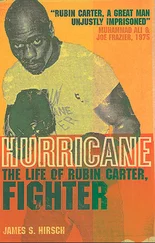The first sight of Dartmoor and the journey round its southern edge had been the jolt that, by his own admission, first took Faraday out of the limited horizons of London, into the beginnings of a new world view. No amount of reading of Ali Baba or of the Encyclopaedia Britannica had prepared him for it: ‘The mountainous nature of the country continually put forward new forms and objects and the landscape changed before the eye more rapidly than the organ could observe it. This gave me some ideas of the pleasures of travelling and have [ sic ] raised my expectations to future enjoyments to a very high point.’ 7Appetite whetted, Faraday and the party retired to bed at the Commercial Inn in Plymouth: ‘Travelling I take it is fatiguing work but perhaps a little practice will enable one to bear it better.’
It was in Plymouth that Faraday’s Journal, and his journey, really began. What survives of the manuscript is a narrative of eighteen months’ adventure by an extraordinarily receptive young man who has been lifted by accident, perseverance and a succession of events from the humdrum life of a bookbinder’s apprentice to stand beside the greatest man of science of the day. There was pain with the pleasure, for although Sir Humphry Davy was instructive and sympathetic to his assistant, and had undoubtedly answered his questions about the geology of Devonshire, he was changeable, and could be vain, high-handed, and overly deferential to his difficult wife. For her part, Lady Davy was snappy and irritable, particularly to the servants, and especially to Faraday. Until the promised replacement for the absent valet came in Paris, Faraday had some extra duties to perform. There was Sir Humphry’s shaving to attend to, the laying out of his clothes in the mornings, the ascertaining of proper standards in the hotels and inns they stayed at, the marshalling of the hotel staff and other servants, and the disposal of the contents of his master’s nightly piss-pots, a chemistry lesson in itself.
They had hoped to leave Plymouth the morning after their arrival on a cartel, a ship licensed to ply between countries at war, carrying messages, essential mail, and prisoners for exchange. But the wind was too high, had been for several days, and had generated an ‘enormous swell of waters which comes rolling in from the Atlantic ocean’. 8This was Faraday’s first sight of the sea. Its strength surprised and entranced him, and over the next few days he observed it with the eye of a natural scientist. The ship’s captain, however, was observing it with a sailor’s eye, and the following day, Sunday, 17 October, he warned the party that having dismantled and loaded the carriage and stowed the luggage, they should come on board to prepare to leave at a moment’s notice. This may have been the first time that Faraday had failed to attend a meeting at the Sandemanian chapel on the Sabbath, and as the continental journey unrolls it becomes clear that he is not as fully committed to the Sandemanianism of his parents as we might expect. He is at best semi-detached, and allows himself to come close to the pleasures of worldly temptation. His first cultural shock came, however, before leaving Plymouth, when he and the party found themselves suddenly and unexpectedly caught in one of the practices of Jewish law that he had read about in Leviticus.
Davy needed to change some money into francs, but as it was the ninth day of the Jewish Feast of the Tabernacles the money-changers in Plymouth refused to do business until after sunset. So the captain devised a charade. He put his watch forward, closed the shutters, lit some candles and assured the money-changers that, yes, the sun had now set, and they really did need to change their money and set sail for France on the tide. ‘He would have prevailed,’ wrote Faraday, spotting the transparent collusion between the captain and the money-changers. But just as a money-changer was ‘about to take the bag out of his pocket, his wife came and to his sorrow told him the hour. And as she knew that he then knew it, he patiently and we impatiently waited until the sun was beneath the horizon.’ 9
While this went on, the captain sailed the ship out of the harbour on the evening tide, and lay waiting in the Sound. With time ticking away, Sir Humphry and his party changed their money, pocketed their francs, jumped into a little boat at the quay, sailed with all speed to catch the cartel and clambered breathlessly aboard.
There was a good swell running that night. The Davys had a cabin, but Faraday stayed on deck, pacing up and down, sitting wrapped in a blanket, leaning on the rail, drinking it all in. His excitement at the new experience of the wind in his face on a night sea voyage rises up out of his Journal. What he writes has a youthful, prosaic directness about it which engages and endears. His impressions are still very present nearly two hundred years later, and we breathe the sea-salt with him. Early in the voyage he is entranced by the phosphorescence shining in the water as the ship’s bow cuts through the waves; he has ‘a fine opportunity of observing the luminous appearance of the sea and was amused by it for a long time. The prow … seemed to turn up a vast number of luminous bodies about the size of peas.’ 10
As day came on and the light increased, Faraday captured the roll of the sea, the rise and fall of the ship, the distance of the far horizon, and the cold green darkness of the wave troughs. A French privateer passed by, a speck in the distance, but although the captain did his best to point it out to him, Faraday could not spot it. There was nothing to be seen ‘except sky and immense waves striding one after the other at a considerable distance. These as they came to us lifted up our small vessel and gave us when on their summits a very extended horizon, but we soon sank down into the valleys between them and had nothing in view but the wall of waters around us.’ 11
They made landfall at Morlaix on the Brittany coast too late in the evening to disembark, so had to anchor and spend ‘another night tossed about on the waters. The evening was very fine but cold. I found the deck however a better place than the cabin.’ 12
When he first saw France Faraday had pangs of ‘regret for home’, intermingled with fear and apprehension. At eleven o’clock in the morning they sailed past the guard ship, their flag of truce flying, 13and came to anchor in the harbour. There they had to wait, writing letters home and amusing themselves with the cabin boy’s banter, until an official was ready to come aboard to give permission to land. The sudden arrival of an enemy ship in a small French port was a significant event, and the local officials needed time to prepare themselves, agree procedure and puff themselves up. This was a big day in Morlaix. They may not have known that the ship’s party included the great natural philosopher Sir Humphry Davy and his entourage, landing with a passport approved by Napoleon himself. The functionaries gathered themselves together, and ‘late in the afternoon the mighty man of office came attended by several understrappers and a barge full of Frenchmen apparently beggars and porters’.
Everybody was questioned and thoroughly searched. Faraday had his hat removed by an official, and it was patted and prodded and inspected, and laid carefully on the deck. Then he was frisked, and his pockets and clothes inspected. He had to take off his shoes so that the officials could ensure there were no secret messages stuffed into them. He was found to be clean – they all were – and they were allowed to pass. But the letters they had written as they waited in the harbour were confiscated, and they were firmly told that they were not permitted to write home about their arrival and reception in France. If they were caught doing so, they risked arrest as spies.
Читать дальше












